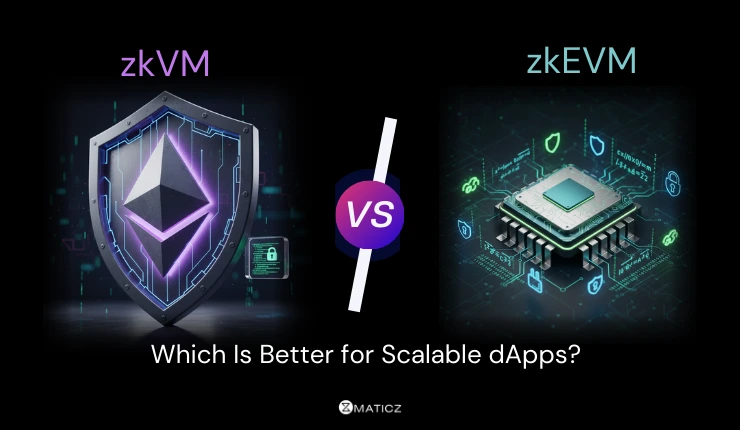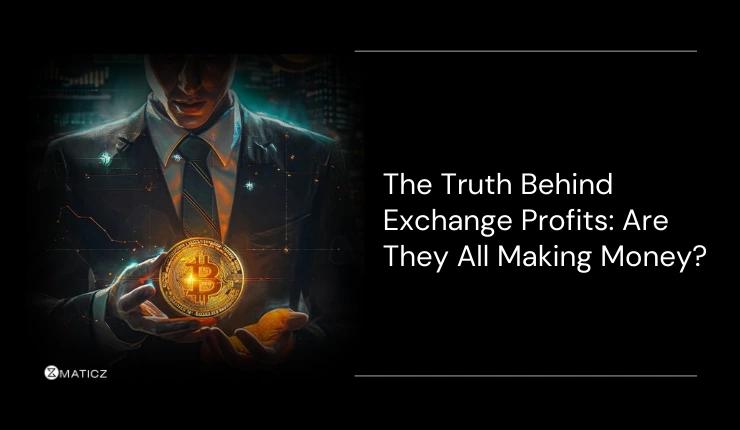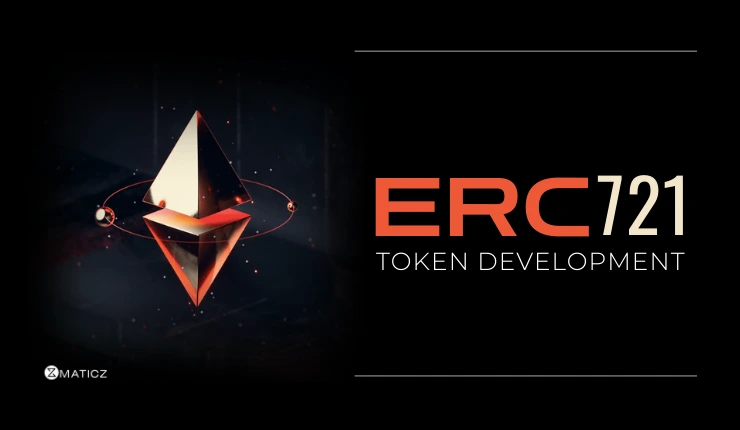Share Posts

How to Build a dApp - 7 Steps to Create a DApp
46
3801
103
If you are looking forward to building your own DApp but don’t know where to start, this blog post will serve as your guide to building your DApp. We’ll break down the process of developing a dapp into steps, explore the necessary technologies, and address common questions.
What is a Decentralized Application (DApp)?
A decentralized application, or DApp, is a software application that operates in a decentralized manner with the help of a blockchain or peer-to-peer (P2P) network of computers instead of on a single computer, whereas traditional apps operate under the control of a single authority, which offers unique characteristics compared to traditional applications. Unlike traditional applications, this decentralization offers several advantages, like enhanced security, transparency, censorship resistance, and increased user control.
DApps can be built for various purposes, including, DeFi (decentralized finance), gaming, social media, supply chain management, and many other industries. However, DApp also comes with some drawbacks. Decentralized applications (DApps) are more expensive to develop and maintain than traditional apps because of the decentralized infrastructure.
How to Build a dApp?
Now that you all know about the basics of decentralized apps, it's time to explain a breakdown of the steps involved in creating a dapp.
1. Define your Dapp's Purpose
This is the first and most crucial step in developing the dapp. Define your dApp's purpose properly, like the problem your dapp aims to solve or the value it offers to users.
Is your dapp aiming to decentralize supply chain management or revolutionize healthcare data management? Once you identify the problem your dapp is intended to solve, you'll have an adequate understanding of the dapp.
And then you can identify the target audience and specific functionalities you want to incorporate.
2. Develop the Smart Contract
Smart contract development lays the foundation of the DApp. Based on the purpose you defined above, now you need to build your smart contact.
A smart Contract is a self-executing code deployed on the blockchain that dictates the rules and logic governing your application, which sets the core logic of your dapp.
Solidity is a popular programming language used for smart contract development. Vyper, Yul, and Rust are also a few other programming languages used for smart contract development.
3. Test and Deploy the Smart Contract
Once you are done building your smart contract, you need to carefully test the smart contract, because the smart contract lays the foundation of your dapp, so it is crucial to ensure your smart contract functions as intended and is free of vulnerabilities.
After coming up with a rigorous testing process, once you are convinced of the smart contract functionality, you can deploy your smart contract on the chosen blockchain network.
4. Develop the Frontend User Interface (UI)
After deploying your smart contract, you need to develop the front-end user interface for your DApp because this is where the user takes part in your DApp and allows users to interact with the smart contract.
HTML, CSS, and Javascript are a few of the building blocks that help you build your DApp user interface (UI), while frameworks like React, Vue.js, or Angular can streamline your development process.
5. Connect Frontend to Smart Contract
This is the most important step in developing the dapp, which involves integrating the user interface (UI) of your app into the deployed smart contract. To make it a functional decentralized application.
You can use libraries like Web3.js or Ethers.js for the Ethereum blockchain to enable communication between your user interface and the blockchain network.
6. DApp Testing and Debugging
Now you almost have your DApp, but without the proper testing, your DApp is too vulnerable to protect sensitive user information. So before deploying your DApp, your DApp should go through some rigorous testing process to make sure it is free of bugs, which brings more confidence to the users to use your DApp.
Because no one wants to use an application that is filled with bugs.
7. DApp Deployment
After completing the testing process, it’s time to deploy your dapp on the chosen blockchain platform. Now your dapp is open for public use and based on user testing, gather the user’s valuable feedback for further improvement in your DApp.
Tech Stack Required to Build a DApp
Building a DApp involves a combination of technologies to build the front end and also for smart contract development. Here's a breakdown of the typical tech stack.
Smart Contract Development
Solidity
Solidity is a high-level programming language that is specifically designed for constructing smart contracts, which is particularly popular for Ethereum-based decentralized app development.
Truffle or Hardhat
Truffle or Hardhat are both javascript-based development environments best suited for the Ethereum Virtual Machine (EVM) blockchain projects that help developers write, test, and debug smart contracts using Solidity.
Frontend Development
HTML, CSS, Javascript
This is the fundamental building block needed to build the frontend user experience (UI) for your DApp that users interact with.
React, Vue.js, or Angular
These are the popular JavaScript frameworks that were used to build your DApp with more dynamic and user-friendly UIs. These frameworks offer pre-build components, tools, and features to accelerate development.
Blockchain Interaction
Web3.js or Ethers.js
As I said before, these javascript libraries help communicate between your Dapp front end and the blockchain network. Ethers.js is a library that helps developers create decentralized applications, while Web3.js is a library that helps developers connect to the Ethereum network. Both of these libraries come with their own set of weaknesses and strengths.
Development Environment
Ganache
Ganache is the tool that enables you to build a local blockchain environment without connecting to or deploying to a testnet, which enables you to develop and test your dApps in a safer environment. Ganache is available as both a CLI and GUI tool.
Pros and Cons of Building a DApp
The dapp technology is exciting, but before diving in you need to understand the potential advantages and disadvantages to know its full potential.
Pros
Enhanced Security
DApps are known for their security because the dapp leverages blockchain technology to store any data. Data stored on a blockchain is tamper-proof and distributed across a network, which makes the dapp more resistant to hacking and fraud.
Transparency and Trust
Every transaction that happens on the blockchain is publicly viewable, which makes dapp a more transparent and trusted platform than other centralized apps. This fosters trust and accountability between users.
Excellent Uptime
The smart contact-powered dapp can run 24/7, which allows DApps to operate more efficiently with very minimal or no downtime.
Increased User Control
Users have more control over their data within a Dapp, which allows users to hold ownership of their assets. Users can also interact directly with the application without any intermediaries.
Cons
Technical Complexity
Building a Dapp requires more technical knowledge like expertise in blockchain technology, smart contract development, and front-end development. If you are not aware of any of these technologies, Hire Maticz, the expert dapp development company, is here to build a dapp that aligns with your specific business needs.
Limited User Adoption
The Dapp ecosystem is still in its development stage and the user's adoption remains relatively low compared to traditional applications.
How much does it cost to build a decentralized application (DApp)?
The Dapp development cost may vary based on the tech stack you choose, the project's complexity, the time frame, the region you choose to build your DApp, and the number of team members required to build the decentralized application. These are all the factors that come into play while building your dapp.
There is no one-size-fit cost to building a decentralized application On a rough note, the dapp development cost will fall between $10,000 to $120,000 based on the above factors.
The below table will give you a proper understanding of the dapp development cost based on its complexity and time frame.
| DApp Complexity | Estimated Cost | Time Frame |
| Simple App | $10,000 to $50,000 | 3 to 6 months |
| Medium Complex App | $50,000 to $90,000 | 6 to 12 months |
| Highly Complex App | 90,000 to $120,000 | More than 12 months |
FAQs
Which Blockchain is best to build a dapp?
The best blockchain for your DApp varies based on your specific needs and the audience you target. Here are some factors that you need to consider before starting your Dapp development.
Functionality
Scalability
Transaction fees
These are some of the popular choices for building DApps, Ethereum, Solana, Binance Smart Chain (BSC), Polygon, and Avalanche. Each has its strengths and weaknesses, so research and choose the one that best aligns with your project requirements
How many DApps run on Ethereum?
According to Cointelegraph, there are more than 3000+ DApps currently running on the Ethereum blockchain and more projects are still in the development phase. And Ethereum remains a dominant force in the DApp development space.
How to ensure the dapp is secure?
Security is paramount in a dapp development, and here are the few steps to ensure your DApp is secure:
Smart Contract Audits
Secure Coding Practices
Use Established Libraries
By following these steps you can make sure that your Dapp is secured.
How can Maticz help you build your DApp?
Maticz is a prominent DApp development company that offers the best-in-class blockchain solutions for entrepreneurs looking forward to entering the blockchain market. We are renowned for our blockchain development services and have successfully delivered over 250 blockchain-related projects for clients worldwide by understanding their unique business needs.
The ever-evolving DApp ecosystem demands an experienced partner like Maticz to guide you to launch a successful decentralized application. At Maticz, we're more than just technology providers. We're a passionate team of blockchain enthusiasts and DApp development experts dedicated to helping you propel your business forward in the blockchain era.
Tap Into the Future
The latest insights, posts, and project updates - straight to your inbox.




